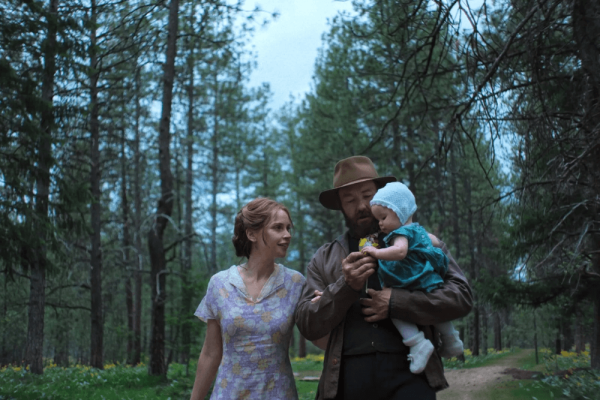THE CLIMATE CRISIS is a moral crisis. What else should we call the willful choice to inflict hunger, disease, and suffering on those in the poorest circumstances?
At the same time, the climate crisis is an opportunity to allow God’s healing grace to enter our lives. As with every great failure of our collective conscience, the way forward begins with each of us standing up in faith and love to right the wrongs of the past. Around the world, faith communities are doing just that. As national governments fail to show the decisive and visionary leadership we need, faith communities are taking up the mantle of justice. Under the banner of the U.N.’s “race to zero” initiative, many faith communities are committing to meaningful changes in the way they operate to build a healthy, safe world that protects everyone.
It’s hard work, but it is the way of the future. In 50 years, the world will no longer run on oil and gas. The only questions are how quickly we can make this change and whether we can make it well. Many faith institutions have chosen to put their pocketbooks to greater service by divesting from fossil fuel companies and reinvesting in clean renewable energy. To date, nearly 400 faith-based institutions have divested, constituting the single largest source of commitments in the global divestment movement. Committed institutions range from huge international networks to small communities of women religious, around the globe. It’s a big movement that is successfully pressuring oil companies to think beyond the status quo.
Prophetic pressure is sorely needed. As just one example of the expansion of fossil fuel infrastructure—an expansion that many oil companies desperately try to greenwash—the French oil giant Total is now working with Standard Bank to build an oil pipeline in East Africa. If successful, this would be the world’s longest heated crude-oil pipeline, causing large-scale displacement of communities and putting tens of thousands of jobs at risk.
Much of the pipeline would pass through Uganda, a dictatorship. Who will benefit from it? You can bet it won’t be the majority of the people who would live under its shadow. This is one reason why Catholics in East Africa and beyond mounted a petition against the pipeline. Thousands of signatures were delivered to Standard Bank, in an incredibly courageous action of confronting a dictatorship that does not brook dissent.
Catholics don’t stand alone in the movement to hasten the arrival of a clean and just future. Christians from across the U.S. ecumenical family have taken strong action. In just the past few months, the Evangelical Environmental Network has published a letter encouraging Pennsylvania to commit to progress on climate, Lutherans have created an online climate-focused worship service, and Interfaith Power and Light has launched an initiative to rally commitments for people of faith to consider climate justice when they vote.
Next year the Vatican will offer a transformative new program, the Laudato Si’ Action Platform, to help communities implement Pope Francis’ visionary Laudato Si’ encyclical. This is a huge effort that will even more strongly cement care for our common home as a priority for the Catholic Church.
Unity in faith makes actions like these possible. Yes, the challenges are enormous. But with a Spirit who unites us and a God who offers us new life, we can band together to make sure the future is safer and more just than the past. We are truly in a race against the worst of the climate crisis. We will overcome by grounding ourselves in the faith and hope we share.
[12/3/2020, 11:36 a.m.] Correction: An earlier version of this article said that “the Earth’s fossil fuels will be depleted” in 50 years. That is incorrect. Fossil fuels will remain, but continued extraction at the current rate will contribute to catastrophic climate disruption.

Got something to say about what you're reading? We value your feedback!







